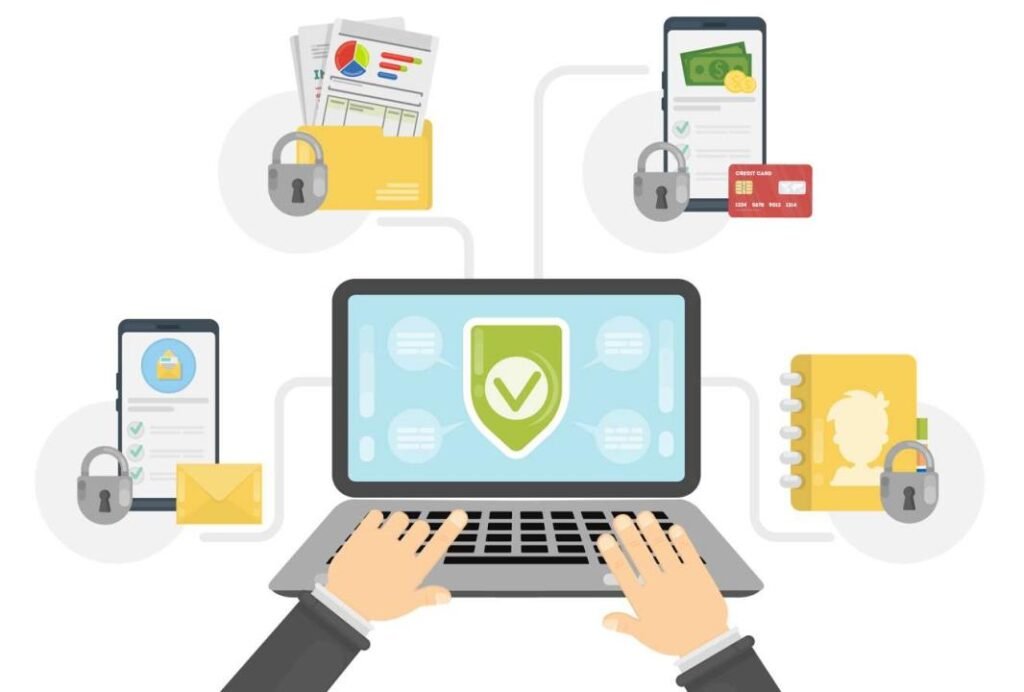The legal industry is built on the principles of confidentiality, trust, and integrity. Handling sensitive client data, legal documents, and contracts requires law firms and legal professionals to adopt secure file-sharing practices. In an era where cyber threats are becoming increasingly sophisticated, safeguarding data is not just a necessity but also a legal and ethical responsibility.
This article explores the best practices for secure file sharing in the legal industry, incorporating insights from surveys and using TitanFile, a secure file-sharing platform, as an example of effective implementation.
Why Secure File Sharing Matters in the Legal Industry
Legal professionals deal with highly sensitive information daily, including:
- Client records
- Case strategies
- Legal contracts
- Confidential communications
Any breach of this information could result in:
- Loss of client trust
- Legal penalties
- Reputational damage
- Financial losses
According to a 2023 survey conducted by the American Bar Association (ABA), 25% of law firms reported experiencing a data breach in the past year. This underscores the need for robust security measures to protect sensitive data.
Challenges in Secure File Sharing for Legal Professionals
Compliance with Regulations
Legal professionals must adhere to strict regulations like:
- General Data Protection Regulation (GDPR)
- Health Insurance Portability and Accountability Act (HIPAA)
- American Bar Association (ABA) guidelines
Rising Cyber Threats
The rise of ransomware, phishing attacks, and malware specifically targeting law firms poses significant challenges.
User Convenience vs. Security
Balancing ease of use and strong security measures is critical to ensure adoption by staff and clients alike.
Best Practices for Secure File Sharing in the Legal Industry
To mitigate risks and ensure compliance, legal professionals should adopt the following best practices:
Use Secure File-Sharing Platforms
Invest in a secure file-sharing platform like TitanFile, which offers:
- End-to-end encryption: Ensures data is encrypted during transmission and storage.
- Two-factor authentication (2FA): Adds an extra layer of security.
- Granular access controls: Restricts access based on roles and permissions.
- Audit trails: Tracks who accessed files and when, for accountability.
Implement Encryption Protocols
Encryption is a cornerstone of secure file sharing. Legal professionals should ensure:
- Files are encrypted at rest and in transit.
- Advanced encryption standards (AES-256) are used.
Adopt Multi-Factor Authentication (MFA)
Multi-factor authentication significantly reduces the risk of unauthorized access. Common methods include:
- SMS or email verification codes
- Biometric authentication (e.g., fingerprint or facial recognition)
Establish Clear Data Sharing Policies
Create and enforce policies that outline:
- Who can access sensitive data
- How files should be shared (e.g., secure links instead of email attachments)
- Retention periods for shared files
Train Employees on Cybersecurity
Human error is a leading cause of data breaches. Regular training sessions should cover:
- Identifying phishing scams
- Using secure file-sharing tools effectively
- Adhering to data-sharing policies
Regularly Audit and Monitor File Sharing
Continuous monitoring helps identify vulnerabilities. Use tools that provide:
- Real-time alerts for suspicious activities
- Detailed logs for audits
Choose Platforms with Legal-Specific Features
Legal professionals should select tools tailored to their needs, such as:
- Secure client portals
- Integration with case management systems
- Compliance with legal industry regulations
Features of TitanFile for Secure File Sharing
TitanFile is a leading secure file-sharing platform designed to meet the needs of legal professionals. Key features include:
- End-to-End Encryption: Ensures files remain confidential.
- Ease of Use: User-friendly interface encourages adoption.
- Compliance: Meets GDPR, HIPAA, and other regulatory standards.
- Customizable Access Controls: Tailor access based on specific requirements.
Benefits of Secure File Sharing Practices
Adopting these best practices offers multiple advantages:
- Enhanced Client Trust: Clients feel confident knowing their data is protected.
- Regulatory Compliance: Avoid costly penalties and legal repercussions.
- Operational Efficiency: Streamlined workflows through secure, user-friendly platforms.
- Risk Mitigation: Reduced likelihood of data breaches and unauthorized access.
Key Takeaways from Surveys on Secure File Sharing
Preferred Features
A survey by the Legal Technology Association in 2023 revealed the top features law firms look for in file-sharing solutions:
- 75% prioritize encryption
- 62% require audit trails
- 58% value integration with existing tools
Adoption Rates
The ABA’s survey noted a 40% increase in law firms adopting secure file-sharing tools post-pandemic, driven by remote work needs.
How TitanFile Helps Legal Professionals Achieve Secure File Sharing
TitanFile addresses all major challenges faced by the legal industry, offering a comprehensive solution for secure file sharing. With its robust features, compliance capabilities, and ease of use, TitanFile empowers legal professionals to:
- Protect sensitive client data
- Comply with stringent regulations
- Foster trust and transparency with clients
Conclusion
Secure file sharing is not just a technological requirement but a fundamental aspect of legal practice in today’s digital world. By adopting platforms like TitanFile and implementing best practices, legal professionals can ensure the highest level of data security, regulatory compliance, and client trust.
Implementing these strategies will safeguard sensitive information, streamline workflows, and uphold the integrity and reputation of legal practices in an increasingly interconnected world.
